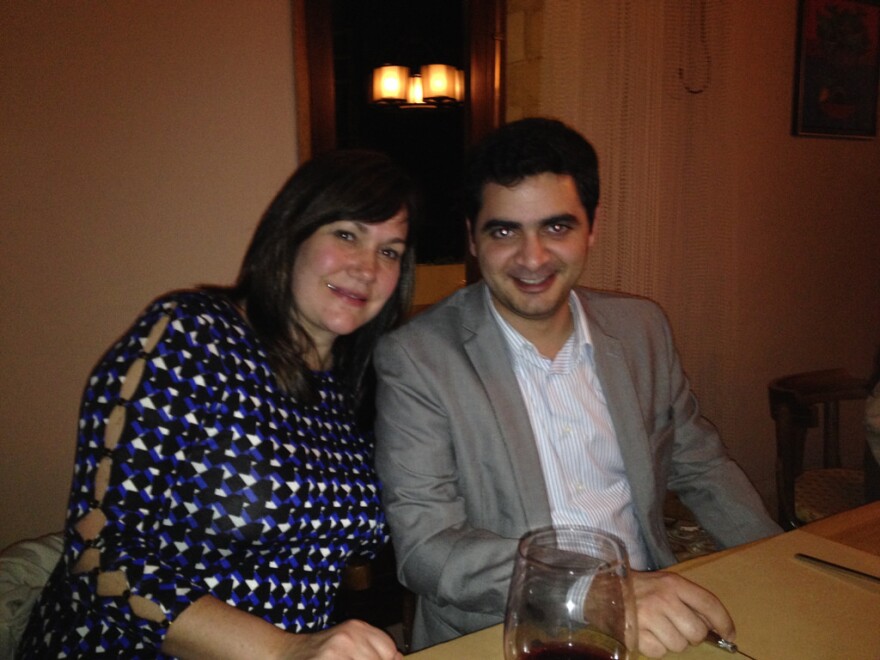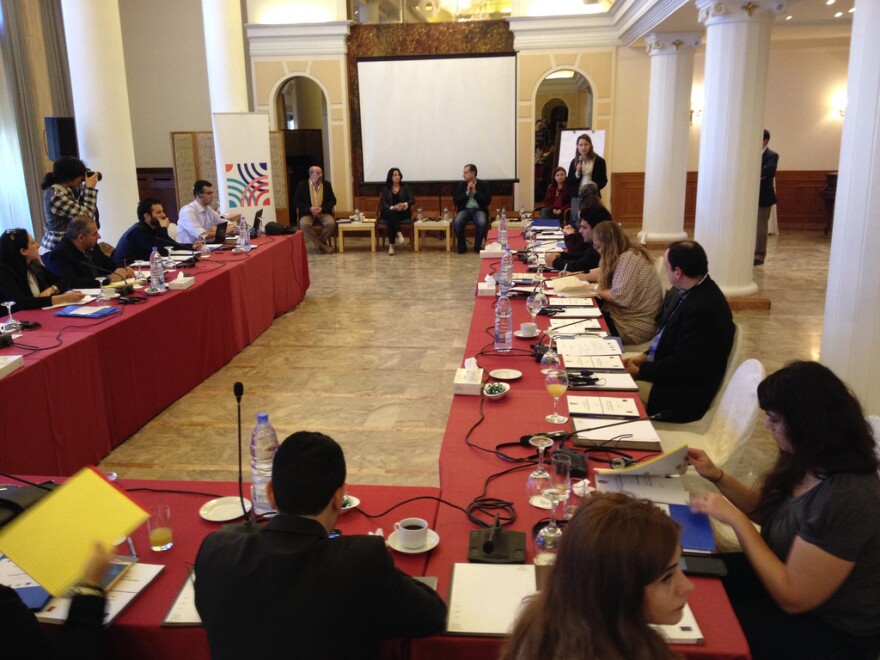I got an unexpected international adventure not long ago. Here's how it went down. You may remember Kelli Arena from her decades at CNN as a correspondent who traveled the world. She now lives in Huntsville, Texas, and works at Sam Houston State University.
“Two years ago we launched the Global Center for Journalism and Democracy,” she explained.
The center’s stated objective is to promote a free and vibrant press, and to do so they pledge to show up at the right time and the right places to help journalists succeed. Through Arena, the university has developed a relationship with the Samir Kassir Foundation in Beirut, Lebanon, which is named for a popular Lebanese journalist assassinated in a car bomb incident.

“The Executive Director of the Samir Kassir Foundation, Aymann Mhanna, and I worked together after I’d left CNN," Arena said. "I launched my own communications firm and had done a fair amount of training in the middle east and North Africa, which is where I met Aymann.”
Early this year, Arena and Aymann collaborated to create an Arts and Culture Reporting Symposium in Beirut for regional journalists. This is when she contacted me, asking me to present what I do at Texas Public Radio to those journalists.
Lebanon, as a war and strife-torn country, is understandably focused on the war they’ve suffered off and on for decades. The Samir Kassir Foundation wants the country’s reporters to also focus on what makes Lebanon unique, resilient and, finally, artful.
“Aymann and I both thought that it was very important to re-energize those journalists who were covering that beat, or to introduce young journalists to the importance of covering that beat,” said Arena.
If all a people hears from its news is how its citizens are in deadly conflict, there’s a danger those people will forget their other attributes.
“It helps establish, even in the citizens’ mind, an identity of that place as a contributor to the world in a positive way,” she said.
We in the U.S. see or hear some kind of arts and culture reporting probably on a daily basis. But that’s not the case in Lebanon. With all this as premise, the Kassir Foundation and the Global Center for Journalism and Democracy assembled about 25 Middle Eastern journalists at a Beirut hotel and brought four very different styles of journalists from the United States and England to illustrate in detail how they do what they do.
It was a two-day convention in late March with wonderful evening events to further introduce the Americans to Lebanon.

Beirut’s a city of roughly the same population as San Antonio, but it occupies a peninsula sticking out into the Mediterranean. With water to its north and west, and massive mountains to the east, Beirut has, by necessity, grown up in the form of skyscrapers far more than has the Alamo City. Hundreds of 20- to 40-story buildings seem to march on forever across the cityscape.
By overnight flight I arrived early afternoon, and a taxi driver picked me up at the airport. He took me for a wild ride to my room at the Riviera Beirut hotel, which also was where the convention would take place.

Beirut Taxi drivers move freely and quickly from lane to lane, discounting red lights when there’s no one coming the other way. While their driving was unnerving at first, I came to realize that most drivers were my age. They couldn’t have gotten that age without skills that served them well. So I learned to let go. Letting go would be a skill that helped me enjoy Beirut much over the next five days.
I also soon learned that the stories of the city, and those of Lebanon itself, were not simple ones. At times they made perfect sense, and at others, they made no sense at all.
After the convention I set out to find a few arts and culture stories to present on Texas Public Radio, but soon realized I found far more than I bargained for.
In my next Beirut report we’ll begin to hear from the people who make up this fascinating place. Here’s Nadine Begdache, a woman whose passion for Lebanese artists was, in a sense, her legacy. She has carried on her mother’s work even as war destroyed their family home.
"When it was bombing at east we were working at west. When it was bombing at west we were trying to do something in the eastern part of the country,” she said.
Her story and much more on my next Beirut report.


